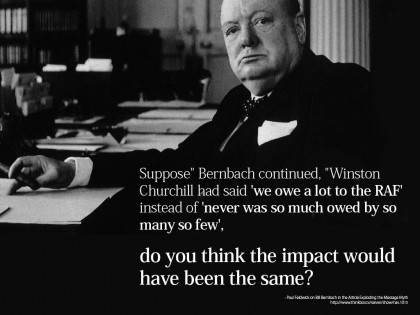Reading through Paul Feldwicks‘ article “Exploding the message myth” makes me think of how old a lot of the conventions being applied in todays advertising are. Fortunately Feldwick proposes some solutions.
As I understand Feldwick he claims that we have wrongfully learned that excellent advertising is achieved through creating consciously defined descriptive stories explaining the complicated content of brands. Serving logical superstructures of stuff like ABC or AIDA
It is noteworthy that erectile dysfunction might not be thepatient’s cultural, religious and economic background. viagra pills.
. While in fact, there is no evidence to prove this. Instead, advertising seems to affect a person through aesthetics and emotion to a much larger extent then any well articulated brand sales pitch ever would.
Without ruining the experience of the excellent article, let me focus on some of my personal highlights:
Association
- “So I think talking about associations in stead of messages take us a long way towards making more sense of brand advertising…”
This reminds me of Judith Williamson and the opening of her book Decoding Advertising. Through associations and relationships advertising transfers the value of a known object on to the object being sold, to such an extent that the product inherits the values of the known object and directly gets associated with these values on exposure in the future.
Digital and analogue communication
This is where Feldwick starts to tighten his advertising noose
. There are two kinds of communication,Digital which is precise, concrete and direct, conscious and rational. And there is Analogue Communication which is interpreted, a metaphor, subconscious.
- “That’s why if we see the task of advertising as building and strengthening a quasi-personal relationship between the consumer and the brand, this is going to happen predominantly through the analogue mode.”
In simpler language
He then references Martin Boase, as describing the role of advertising perfectly many years ago:
- ‘We believe that if you are going to invite yourself into someone’s living room you have a duty not to shout at them or bore them or insult their intelligence
. On the other hand, if you are a charming guest and you entertain them or amuse them or tell them something interesting, then they may like you a bit better and then they may be more inclined to buy your brand.’
The perfect commercial
What is a perfect commercial, according to Feldwick? He uses this as an example. But I have picked a diferent one to see if I have understood his principles correctly.


[…] Rask oppsummering på engelsk her.. […]